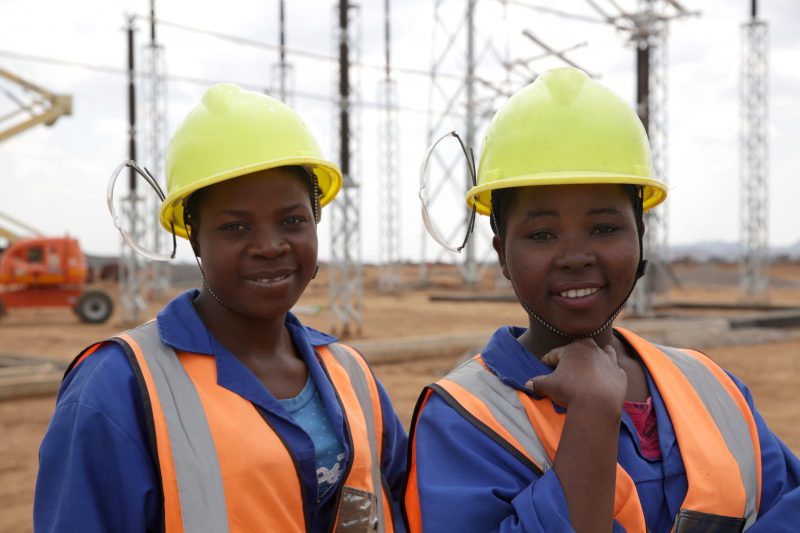
MCC
Women working at the Nkhoma substation outside of Lilongwe, one of the end points of the new 400kv line that has greatly increased the capacity of Malawi’s power sector.
Access to electricity can lead to greater economic opportunities for men and women. It can free up large amounts of time and labor—especially for women—and can promote better health and education within communities.
MCC’s energy investments, including those in Benin, Ghana and Malawi, are expanding access to reliable electricity, and have built in elements to ensure that men and women benefit from and make the most productive use of that energy access. With increased access to reliable and affordable sources of electricity, women entrepreneurs can expand their businesses, invest in new products, serve more customers, and improve their profits. MCC programs, in partnership with host country governments and utilities, provide not only the physical infrastructure needed to generate, transmit, and distribute electricity, but also build the capacity of the energy sector overall. Working with country partners, MCC identifies opportunities to hire, train, and promote women in the energy sector, where they have traditionally been under-represented.
Helping female entrepreneurs in Benin’s electricity sector
In Benin, MCC is increasing the electricity supply, including through innovative off-grid projects that reach rural areas and under-served populations. A Women’s Energy Entrepreneurship initiative is training female entrepreneurs in the electricity sector, helping them gain business management skills, improve their energy use and efficiency, and access new business opportunities and financing. Participants in the program have upgraded to better equipment which allows them to expand and serve more customers. Others have been able to access loans to help grow their businesses. Participants report that they have particularly benefitted from the mentorship of their peers and the creation of a network of energy entrepreneurs.
Increasing women’s employability in the Ghana power sector
In Ghana, MCC is working to increase women’s employment and participation in decision making in the energy sector through a two-pronged approach. MCC’s investments support the development of the Gender and Social Inclusion Policy for the Electricity Company of Ghana, which seeks to increase women’s employment and career development through recruitment, training, and promotion. A newly established Gender Unit will implement and monitor progress on the policy in coordination with Human Resources and other departments. In order to ensure that women are appropriately prepared for and linked to careers with the Electricity Company of Ghana, MCC is also providing internships to female students enrolled in STEM fields so that they can receive practical work experience as well as mentorship. By partnering with the Electricity Company of Ghana as well as organizations like the Ghana Women in Engineering Association, MCC is helping to increase women’s participation in the workforce of the energy sector.
Mainstreaming women in Malawi’s energy sector
The recently completed Malawi Compact included a Power Sector Reform Project. The project launched a grant facility to promote social and gender-responsive approaches to natural resource management, which impacts the country’s power generation capability through its hydropower plants. Additionally, the country’s electricity utility—the Electricity Supply Corporation of Malawi (ESCOM) is now leading the way in mainstreaming women’s participation in the energy sector—training employees and developing opportunities for the next generation of female engineers. According to ESCOM Gender and Social Inclusion Manager Elube Chienda, “research has shown that organizations which have included women in their decision-making forums and in the operations of those organizations are able to perform much better than organizations which don’t have women in their committees or teams.” As part of the Malawi Compact, ESCOM also instituted gender policies and introduced programs and scholarships to attract female engineers.
MCC’s efforts to improve women’s access to energy as well as their professional participation in the energy sector is crucial to the economic development of our country partners. Through expanded access to on- and off-grid energy, technical assistance, and education and training for women to participate in the energy sector, MCC’s investments successfully break down barriers that prevent women from fully engaging in their local economies.

